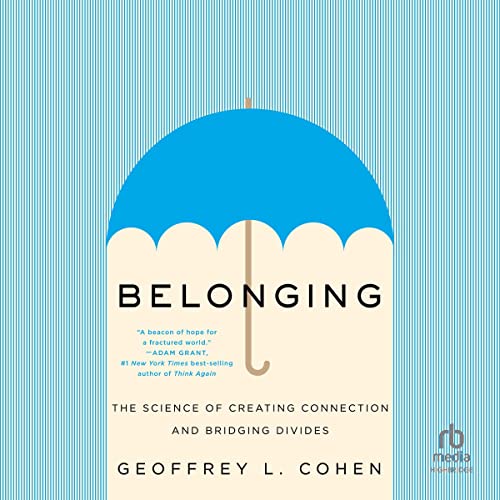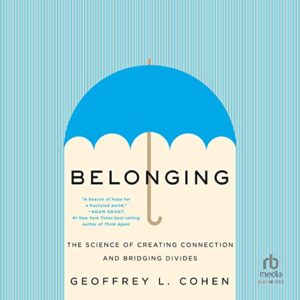

The book addresses what Geoffrey calls “situation-crafting” and “wise” interventions which are not about manipulating individuals but “catalyzing” the development of prosocial behaviors and beliefs which can lead to more psychologically healthy and productive working and learning environments. This involves not only understanding the environment but understanding what individuals bring to the situation through their diverse histories and current frames of mind. Geoffrey explains how this “dance” between the individual and the context facilitates individuals toward both antisocial and prosocial behaviors. Through this book you will reflect on what you are doing that might be catalyzing undesired behaviors in your communities and then learn how you as a manager, teacher, partner, friend, or member of a family can better create situational opportunities so that people can express their potential and feel valued for it – creating situations for belonging and thriving.
The author does an excellent job of framing research in ways that generate curiosity and deeper understanding. Regardless of your level of expertise, you will learn something new from his insights working directly with infamous research like that of the Stanford Prison Experiment demonstrating how situation crafting led everyday people to engage in deplorable behaviors toward fellow humans. I found myself consistently impressed and inspired by his and his colleagues’ creative and lively experiments devised to uncover mediating factors in slippery social psychological phenomena. Moreover, because Geoffrey adopts the philosophy that to truly understand something you must try to change it, his work is very translatable to improving everyday life.
Reducing or eliminating racial profiling in hiring, reducing recidivism rates among parolees, and intervening to reduce peer bullying in schools can often be accomplished through simple science-backed procedural changes like writing a couple of sentences, ten-minute writing activities, group reflections, or one-hour training modules that lead to greater connection across groups. The tools presented here also include subtle conversational adjustments such as adding “I think…” to position statements that invite discussion rather than an oppositional stance. There is also enlightening in-depth analysis of what leads to the radicalization of individuals and what types of experiences lead them to a reevaluation of their actions and purpose. Overall, you will begin to view the social challenges in your personal and professional lives as opportunities to implement the new tools you will learn through this book.
As if this is not enough reason to read, the concepts are not only embedded in university research and metacognitive discussion, but they are entertainingly couched in historical examples, current tumultuous politics, personal parenting experience of the author, examples from science fiction miniseries like Black Mirror, popular literature, and numerous quotes from popular music. The book not only helps you understand the topic but offers these tapas of history and culture, making it an enjoyable and broad learning experience.
The powerful desire to belong is a mighty lever that has generated modern cultural divides and solidarity, terrorism and altruism, and destabilization and productive collaboration. Recognizing these dynamics will renew your commitment to life as a constructive and creative member of many communities.




